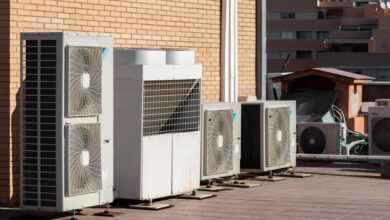6 Tips For Choosing A Water Filter For Your Home

Water is one of the basic human necessities. And while modern civilization has provided better access to water, most people are often disappointed to learn that there’s a lot in their water that they’d rather not consume.
As concerns over tap water quality continue to grow, there’s one thing you can do to ensure clean and healthy water for your family: install a water filter. However, with manufacturers introducing various water filtration products to the market, how do you choose the right one for your needs? Here are some tips to follow:

-
Analyze Your Water
You might not be able to choose the right water filtration system until you know what you need to filter and remove. So, primarily, you should test your water quality and determine the types and quantity of contaminants in your supply.
If you’re getting water from a private source such as a well, you can purchase and use at-home water testing kits to analyze your water. You can also hire a water specialist to do the testing. On the other hand, if you’re getting water from your local municipality, you can ask for their water quality index report.
-
Check The Filter’s Testing Certifications
You want your water to be as clean as possible, so you should ensure that the water filter you’re eyeing can indeed filter and clean your water. In this case, third-party testing can provide reliable proof that the filter does exactly what it says.
In particular, you want the water filter system to have the official National Sanitation Foundation (NSF) certification. The NSF is an international organization that tests, inspects, and certifies products like water filtration systems. Having the seal of certification from the NSF indicates that the water filter complies with the predetermined standards of safety, quality, and sanitation, ensuring that it can effectively treat contaminated water.
Generally, it’s easy to find the NSF certification in trusted brands since most manufacturers often show it off as a mark of quality. If you want to check out water filters that have undergone strict quality testing and have NSF certification, you can visit filtap.com.au/under-sink-water-filters/5-stage-reverse-osmosis/.
-
Understand Point Of Entry Vs. Point Of Use
While numerous water filtration systems are available, they are mainly categorized into two types: Point of Entry (POE) and Point of Use (POU).
POU filters are specific products installed in places such as showers or kitchen faucets to remove contaminants, including pathogens. Examples of POU filters include countertop water filters and under-sink water filters.
POE filters, on the other hand, are more versatile and complex. Also known as a whole-house filter, this type of water filter is installed directly to your home’s water supply line entry to provide clean water for all water fixtures and water-using appliances.
-
Consider Your Budget
Water filters can cost you a few hundred dollars for smaller countertop systems or thousands for a whole home filtration system. Thus, it’s crucial to set a specific budget, depending on the type you need and want.
Make sure to compare filtration systems from different manufacturers. Aside from the upfront cost, you should also consider the system maintenance and installation costs, especially for whole home filtration systems.
-
Check The System Size
It’s critical to ensure that there’s enough space in your installation location to comfortably locate your filter system and perform the necessary maintenance with ease. That said, the system size is another factor you must consider, especially if you’re considering a countertop water filtration system. Since it takes up space, you need to measure your planned installation location, comparing the measurements to the size of the filtration system you’re planning to install.
-
Understand The Flow Rate
If you’re planning to get a whole house filtration system, you need to consider how it could affect your water supply’s pressure. Generally, most water systems won’t affect your supply’s flow rate as long as you choose the proper size. However, in case you chose a small-sized water filtration system mistakenly, it can cause water flow to drop significantly. So, consider checking the system’s gallons per minute (GPM) rate against your home’s size, number of bathrooms, and water usage, especially at peak use, to prevent low water pressure.
Takeaway
Nowadays, water filters are vital for healthy living—ensuring that the water you use and drink is as clean and pure as possible. And while water filters are a life-changing investment for your whole family, you can only get the most out of their benefits if you invest wisely. So, follow the above tips and choose the best water filter for your home.




